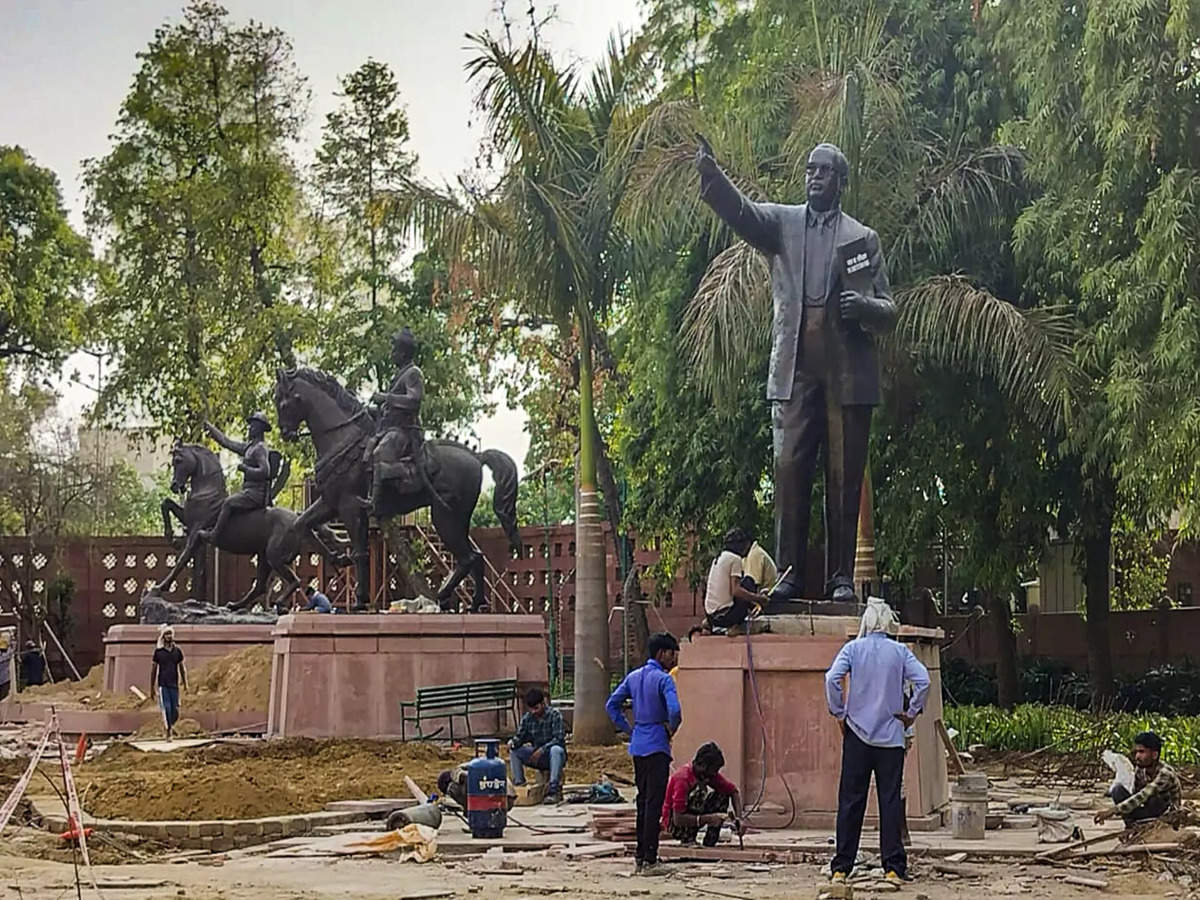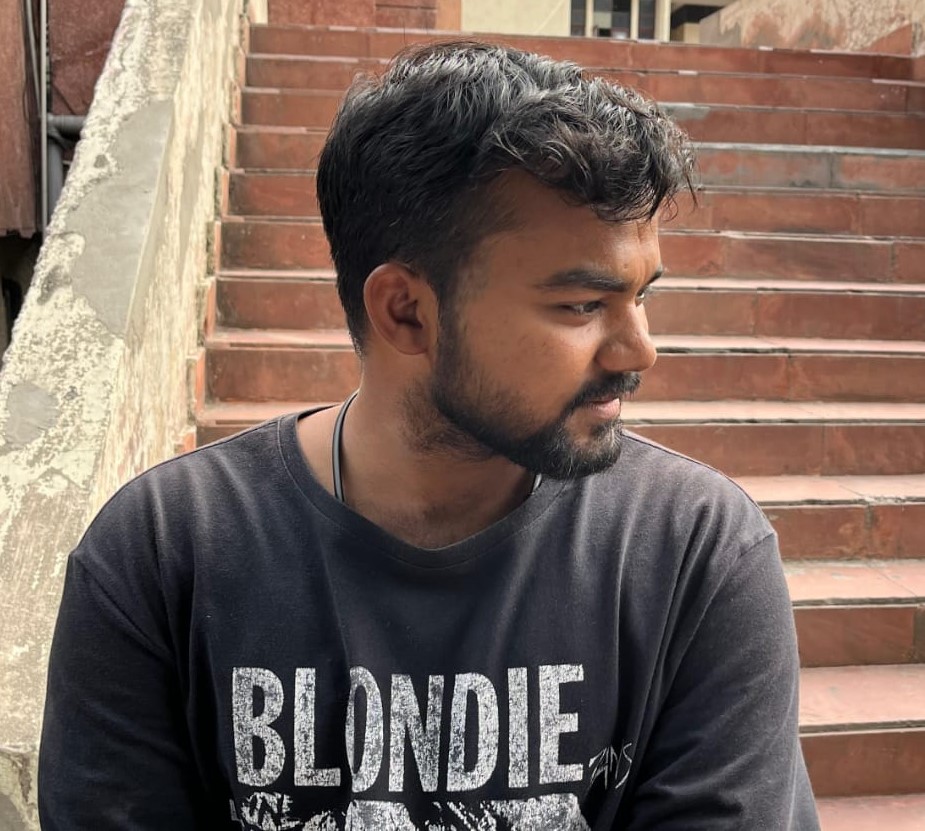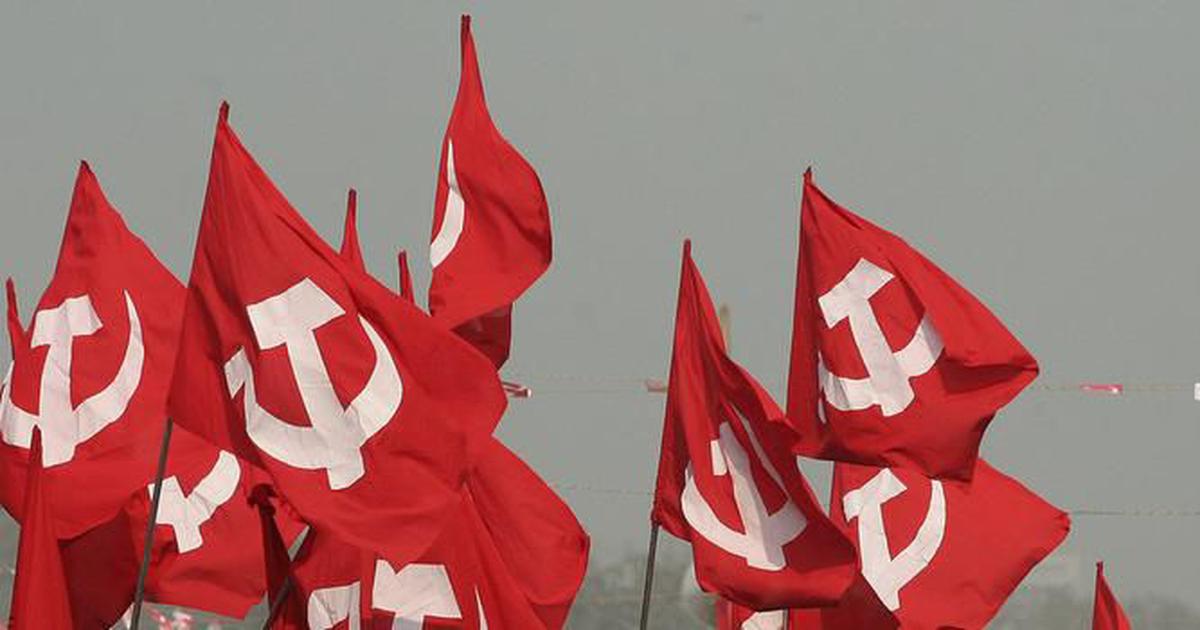The prevalent discourse on democracy seeking to counter Hindu nationalism has yet to consider Babasaheb Ambedkar’s ideas on democracy. Ambedkar, a staunch social democrat, remains the untouched subject both by the progressive sections and mainstream media. Perhaps due to individual disagreements, any discourse on Ambedkar is set aside and the vast heritage of his conceptualization of democracy neglected. Just sample the speech “Conditions Precedent for the Successful Working of Democracy” Ambedkar delivered at the Poona District Law Library on 22 December 1952. He was there on an invitation to unveil the portrait of L.R. Gokhale and declare open to the public a set of newly donated books.
Ambedkar began his address by thanking the organizers for inviting him. Since he was professionally trained in a wide range of subjects, he asked the secretary of the library on what subject the audience wanted to hear him speak. He was given four topics and asked to choose one of them. He chose “Parliamentary Democracy”, but tweaking it a little, he said he would speak on “Conditions Precedent for the Successful Working of Democracy”, which according to him, was hugely important for a newborn India.
Before dealing with the subject matter, he decided to deal with several preliminary observations to provide what he called “a setting for the subject”.
The first such observation Ambedkar made was “democracy is always changing in its form”. The ancient Greeks had their Athenian democracy, but, he noted, half the population were still slaves. Democracy in Athens was the exhibition of master-slave relations.
Second, “even in the same country democracy is not always the same”. He supported his argument with the example of England. English democracy was not the same after the revolution of 1688. Democracy in England changed again after the reforms of 1832.
Third, Ambedkar noted, “democracy not only undergoes the change in its form, democracy always undergoes the changes in purposes”. The purpose of the ancient English democracy was to prevent the king from exercising “prerogative rights”. The resistance to autocratic functioning of the king is what led to the emergence and development of democracy. Ambedkar clarified, “The purpose of modern Democracy is not so much to put a curb on an autocratic king but to bring about the welfare of the people.” It is clear that Ambedkar here refers to the substance of democracy – a mechanism to reach the common good.
After providing this background, he goes on to define democracy. Since it is a dynamic concept with no universally accepted concrete definition, it is unfair to assume larger consensus on certain sections of it. There have been many philosophers, political scientists, writers and thinkers who have contributed to the preconditions for a workable democracy. Out of all the theoretical contributions to democracy as a concept, Ambedkar referred to the two thinkers – Walter Bagehot and Abraham Lincoln. Bagehot defined democracy as a “government by discussion”. Ambedkar agreed with Walter Bagehot’s definition of democracy. Another reference he provides in his address is that of Abraham Lincoln, for whom democracy meant “government by the people, of the people and for the people”. Analyzing predominant definitions of democracy, Ambedkar tried to arrive at his definition of democracy based on the material reality of the people of India. His definition of democracy reflected experiences of the existing social inequalities in India. He said democracy is “a form and a method of government whereby revolutionary changes in the economic and social life of the people are brought about without bloodshed”. His definition of democracy encompassed elements of a welfare state that intervened in public life to increase the capabilities of the weaker sections to achieve socio-economic equality. It is clear that for Ambedkar the practicality of such a definition was important. The severest test for a state to qualify as a democracy was for fundamental changes in social and economic life to take place without bloodshed. He said, “One has to read history and as a result of reading history to find out the breakdown period in democracy’s life in the different parts of the world where it had functioned and come to one’s own conclusion”. In the next section of his address, he touches upon the conditions precedent for the successful democracy.
Condition No. 1
According to Babasaheb Ambedkar, the first condition precedent for the successful working of the democracy is, “there must be no glaring inequalities in society”. He elaborated, “there must not be any oppressed class and suppressed class”. There shall not be a harsh distinction between the have and have-nots. The privileged section should not exploit the oppressed section. The ruling class should not enjoy the monopoly over wealth and resources. The oppressed class should not be forced to carry the burden of the entire society. The growing inequalities will result in devastation of democracy. This devastation may include rebellion or revolution. Establishment of any political or social organization of society on the foundation of inequalities may result in bloodshed and discontent. Ambedkar remarked that “the deep cleavages between the class and class are going to be one of the greatest hindrances in the success of democracy”. Ambedkar was aware of the prevalent contradictions in the society. Historically, it is evident that parliamentary democracy has the potential to turn into tyranny with the suppression of minorities through manipulation and hegemonization.

Condition No. 2
Ambedkar spelt out the second condition for the successful working of a democracy as “existence of the opposition”. He explains the role opposition plays in a healthy democracy and the need for a veto of power. According to him, “Democracy is a contradiction of hereditary authority or autocratic authority. Democracy means that at some stage somewhere there must be a veto on the authority of those who are ruling the country.” Unlike the autocracy or monarchy, those in power in a democracy have no perpetual authority to rule. The need for consent from the masses through elections held after every term puts restrictions on the rulers and forces them to regain trust for another term. Apart from this, there will be an “immediate veto”, that is, the unity of opposition in the parliament. The opposition in Parliament holds the government to account on decisions they make and acts of omission and commission.
Condition No. 3
The third condition is equality in law and administration. This is done by keeping the judiciary and civil services as independent of the political offices as possible in the dispensation of their duties. A new party is voted to power but the judiciary and civil services remain unchanged. Ambedkar talked about the “spoil system” that was practised in the United States, when with a new party coming to power, the civil offices too – down to the clerical positions – were filled with the supporters of the government. This system was found to be counterproductive to democracy and changed. He contrasted the “spoil system” with the system in England, where, Ambedkar writes, “in order that administration should remain pure, impartial, away from politics and policy, they have made a distinction between what is called political offices and civil offices. The civil service is permanent. It serves all the parties whichever is in office and carries out the administration without any kind of interference from the Minister.”
The Indian civil services too have been operating on a similar principle. But the central government’s recent directive allowing central government employees to be part of the Rashtriya Swayamsevak Sangh (RSS) goes against this principle of separating political and civil offices because the RSS is clearly a political organization promoting a Hindu nationalist agenda and the parent organization of the ruling BJP. Even with a permanent civil service, the influence of the RSS on the officers threatens equality in administration. Recently, a high court judge resigned and joined the BJP, while another high judge declared on retirement that he is a lifelong member of the RSS.
Condition No. 4
The fourth condition is “constitutional morality”. According to him, the written Constitution is a skeleton for which the flesh has to be found in constitutional morality. To explain constitutional morality, he gave the example of George Washington, the first president of the United States, who, despite having assumed a godlike status, initially refused to give in to demands to stand for a second term, because he said that would go against the purpose of the Constitution which was to replace the monarchical, hereditary rule. Eventually, he relented, became president for a second term but he didn’t bow to pressure again at the end of the second term. It is easy to fall for emotions leaving behind the moral and ethical values. Constitutional morality is not a belief system. Instead it inculcates the knowledge system and awareness about the civil and political affairs of a democratic state with positive results.
Condition No. 5
“There is one other thing which I think is necessary for the working of democracy and it is this that in the name of democracy, there must not be tyranny of the majority over the minority,” said Ambedkar. His focus was on democracy within legislative bodies, especially in Parliament, about the majority party allowing debates on adjournment motions. At the time, the Congress party had a massive majority. The numbers were similarly in favour of the Bharatiya Janata Party (BJP) in its last term, 2019-24, when several crucial bills were bulldozed through Parliament with little or no debate.
After highlighting these aforementioned preconditions for a successful working of a democracy, Ambedkar concluded his address focusing on the issues of “Moral Order” and “Public Conscience”. Predominantly, ethics and politics are dealt separately, which results in the moral order being taken for granted. Ambedkar said, “Democracy is spoken of as a free Government. And what do we mean by free Government? Free Government means that in vast aspects of social life people are left free to carry on without interference of law, or if law has to be made, then the law maker expects that society will have enough morality in it to make the law a success.” Surely, Ambedkar was alluding to the inherent lack of moral order in Indian society built on the caste system, under which the freedoms of a vast majority of the population is taken away at birth.
Ambedkar talked about the lack of “public conscience” in India. He defined public conscience thus: “Public conscience means conscience which becomes agitated at every wrong, no matter who is the sufferer and it means that everybody whether he suffers that particular wrong or not, is prepared to join him in order to get him relieved.” He reminded the audience that the Whites were taking up the cause of the Blacks and Indians in South Africa but few in India spoke up against the segregation faced by Dalits if they weren’t Dalits themselves. He said, “If this sort of thing happens, the minority which is suffering from injustice gets no help from others for the purpose of getting rid of this injustice, it again develops a revolutionary mentality which puts democracy in danger.”
He concluded by warning the audience of the fragility of democracy. Democracy had survived in a handful of countries, he said, and that merely having won independence from the British and ratified a Constitution didn’t mean that democracy was secure in India. “With all these examples before us, I think we ought to be very cautious and very considerate regarding our own future. You ought to consider whether we ought not to take some very positive steps in order to remove some of the stones and the boulders which are lying in our path in order to make our democracy safe.”
Forward Press also publishes books on Bahujan issues. Forward Press Books sheds light on the widespread problems as well as the finer aspects of Bahujan (Dalit, OBC, Adivasi, Nomadic, Pasmanda) society, culture, literature and politics. Contact us for a list of FP Books’ titles and to order. Mobile: +917827427311, Email: info@forwardmagazine.in)





